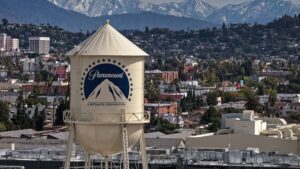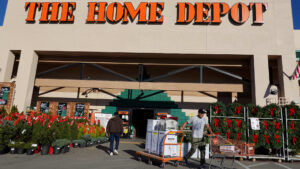Possible Rail Stoppage Could Fuel More Inflation

As talks around new labor contracts for railway workers reach a crucial juncture, concerns are mounting over the potential upward pressure on prices if a strike snarls supply chains and hurts economic activity, according to economists and business groups.
The economic impact of any disruption would depend on how long the strike lasts. Congress also could intervene to delay or stop any strike.
A railroad strike could start as soon as Friday if rail companies and labor unions can’t reach a deal on a new contract. Labor Secretary Marty Walsh was meeting Wednesday with union and rail-company leaders to encourage them to reach an agreement.
White House officials are trying to broker a deal before a Friday 12:01 a.m. deadline when the unions have threatened to start a strike. Railroads have started cutting some services this week.
Stopping America’s 7,000 long-distance freight trains could reduce economic output by more than $2 billion every day, the Association of American Railroads said in a recent report. Some of that economic activity, however, could be delayed until after the strike ends, rather than lost forever.

Labor Secretary Marty Walsh met Wednesday with union and rail-company leaders to encourage them to reach an agreement.
Photo:
Rebecca Droke/Associated Press
Passenger rail provider Amtrak has canceled some long-distance trains and some freight rail operators have already stopped accepting hazardous goods.
U.S. economic output last year was $23 trillion, or an average of $63 billion a day.
America’s rail network is used by manufacturers to get parts and move goods as well as by retailers to get products from ports. Many items end up on multiple forms of transportation as they make their way across the U.S. and around the world.
Business groups said it would be difficult and costly to find alternative methods of transportation, typically trucks, because there aren’t enough trucks and truck drivers to go around. If a strike takes place, the railroad economic report estimates, there would be a need for an additional 467,000 long-haul trucks immediately, above the 2.8 million truck tractors that are already in operation.
“Supply networks are at risk of disruption once again if railroad workers go on strike,” wrote Rubeela Farooqi, chief U.S. economist for High Frequency Economics. “Interruptions to rail traffic would cause product shortages, which would impact both sales and factory operations, with implications for prices.”
U.S. consumers and businesses have faced rising prices in recent months as high incomes boost demand while supply-chain constraints and a tight labor market raise costs for companies.
Consumer prices increased in August, in a sign that inflation isn’t disappearing. The Labor Department on Tuesday said its consumer-price index rose 8.3% in August from a year before after an 8.5% increase in July and a 9.1% rise in June. So-called core CPI, which excludes energy and food prices, increased 6.3% in August from a year earlier, up from the 5.9% rate in both June and July, reflecting broadening price pressures.
The producer-price index, which measures what suppliers are charging, rose 8.7% in August from a year before, down from July’s 9.8% increase but still high, the Labor Department said Wednesday. .
The PPI fell 0.1% in August from July, smaller than the 0.4% decrease in July from June.
The potential train disruption could cause a flare up of supply-chain issues that were easing. The Federal Reserve Bank of New York has said that global supply-chain constraints in August were at their lowest in more than a year. The port of Los Angeles said there were currently a backup of 10 container ships, down from more than 100 in January.
Some rail operators have already stopped accepting new loads of hazardous goods, like certain chemicals, so they aren’t left unattended. Scott Jensen, the director for issue communications at the American Chemistry Council, said a rail stoppage would raise costs for manufacturers and reduce output.
“Even though there hasn’t been a strike, the potential of a strike is having an impact,” he said.
The U.S. shipped 464,261 carloads of goods for the week ended September 10, according to the Association of American Railroads. Bulk commodities like coal and grain as well as products like cars are all commonly shipped by rail.
The strike would also hurt passenger rail service as many trains use railroads controlled by the freight rail companies. Amtrak, the U.S. passenger rail operator, already canceled some long-haul routes—like from Seattle to Los Angeles–to avoid the possibility of stranded passengers. Metra, the commuter rail system for the Chicago area, said the strike would stop all service for the 80,000 passengers who use four of its lines and likely affect an additional five lines.
Jay Timmons, chief executive of the National Association of Manufacturers, said a train stoppage would worsen issues manufacturers already face, including increasing costs of raw materials and supply-chain disruptions.
“This ongoing rail labor uncertainty exacerbates these stressors our members currently face,” he said.
—Paul Page contributed to this article.
Write to Austen Hufford at austen.hufford@wsj.com
Copyright ©2022 Dow Jones & Company, Inc. All Rights Reserved. 87990cbe856818d5eddac44c7b1cdeb8







